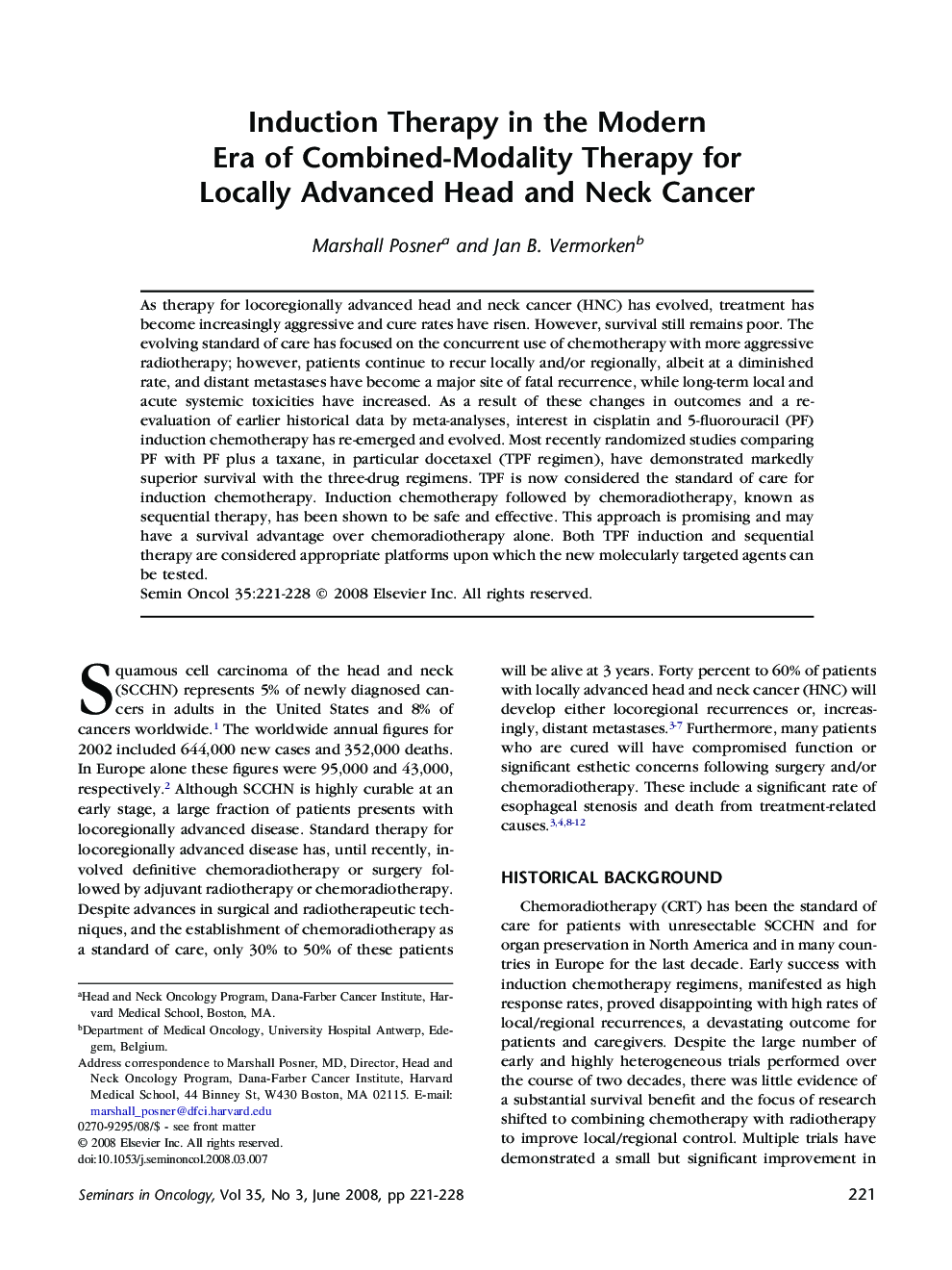| Article ID | Journal | Published Year | Pages | File Type |
|---|---|---|---|---|
| 2162932 | Seminars in Oncology | 2008 | 8 Pages |
Abstract
As therapy for locoregionally advanced head and neck cancer (HNC) has evolved, treatment has become increasingly aggressive and cure rates have risen. However, survival still remains poor. The evolving standard of care has focused on the concurrent use of chemotherapy with more aggressive radiotherapy; however, patients continue to recur locally and/or regionally, albeit at a diminished rate, and distant metastases have become a major site of fatal recurrence, while long-term local and acute systemic toxicities have increased. As a result of these changes in outcomes and a re-evaluation of earlier historical data by meta-analyses, interest in cisplatin and 5-fluorouracil (PF) induction chemotherapy has re-emerged and evolved. Most recently randomized studies comparing PF with PF plus a taxane, in particular docetaxel (TPF regimen), have demonstrated markedly superior survival with the three-drug regimens. TPF is now considered the standard of care for induction chemotherapy. Induction chemotherapy followed by chemoradiotherapy, known as sequential therapy, has been shown to be safe and effective. This approach is promising and may have a survival advantage over chemoradiotherapy alone. Both TPF induction and sequential therapy are considered appropriate platforms upon which the new molecularly targeted agents can be tested.
Related Topics
Life Sciences
Biochemistry, Genetics and Molecular Biology
Cancer Research
Authors
Marshall Posner, Jan B. Vermorken,
